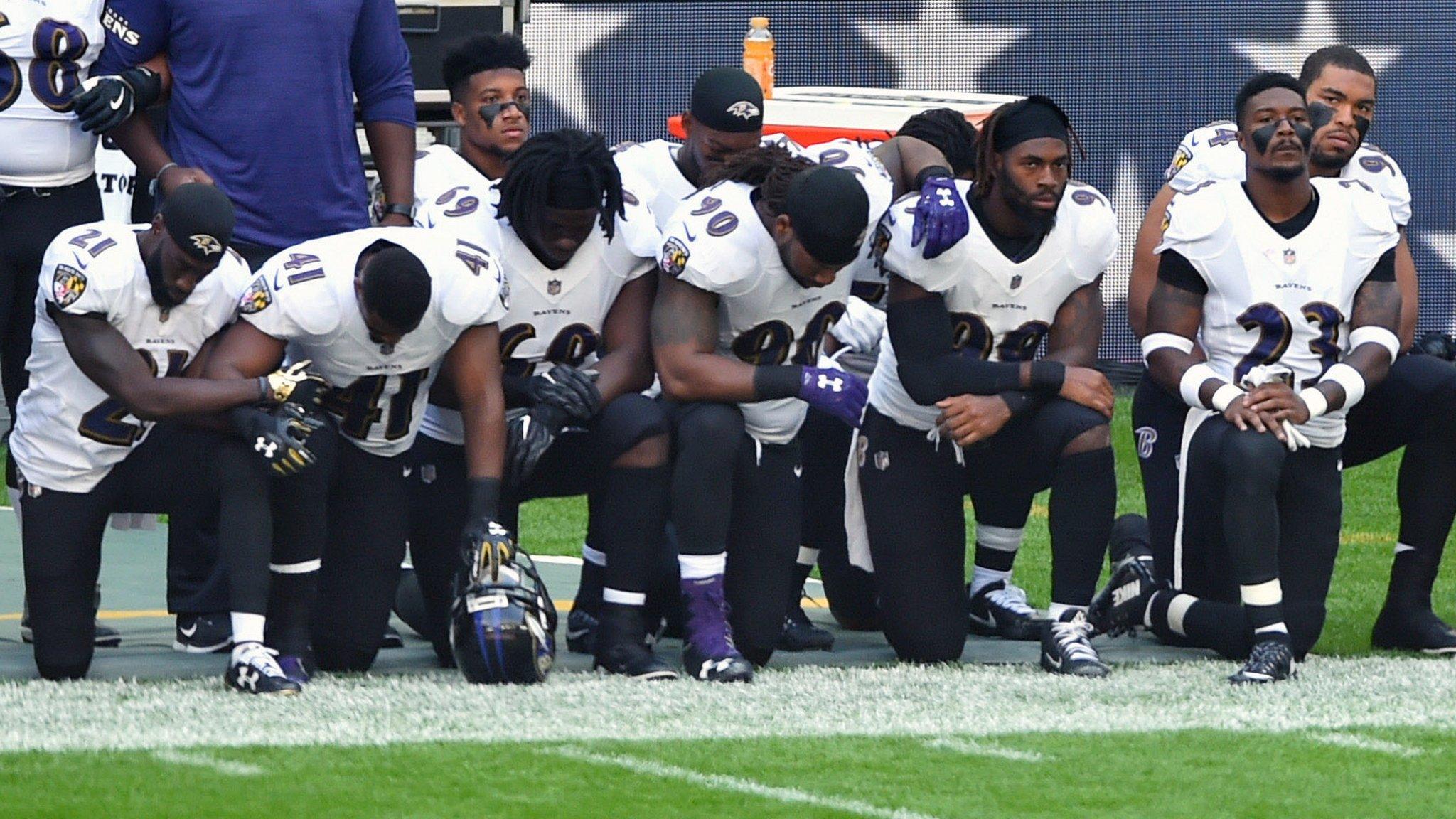Dallas Cowboys players and owner Jerry Jones take a knee before national anthem
- Published
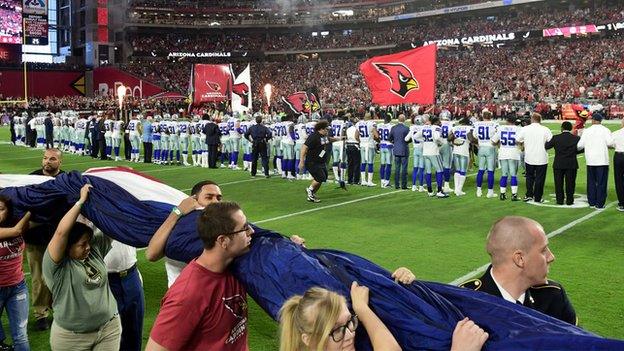
The Cowboys went on to beat the Cardinals 28-17
The Dallas Cowboys players, staff and owner Jerry Jones took a knee before the US national anthem at Monday's game against the Arizona Cardinals in a protest against President Donald Trump.
Boos were heard in the stadium before both teams stood and linked arms on their own sidelines for the anthem.
Trump said on Friday that NFL players who fail to stand during the national anthem should be sacked or suspended.
Jones was one of seven NFL owners to donate to Trump's inauguration.
The US President responded on Tuesday by tweeting:, external "The booing at the NFL football game last night, when the entire Dallas team dropped to its knees, was loudest I have ever heard. Great anger.
"But while Dallas dropped to its knees as a team, they all stood up for our National Anthem. Big progress being made - we all love our country."
Dez Bryant of the Dallas Cowboys carries five defenders over for touchdown
In widespread protests at the weekend, players responded by kneeling, linking arms or staying in the locker room.
Basketball star LeBron James praised the players who protested against Trump, and accused the US president of "using sports to try and divide us".
James praised the players' unity, and said: "The people run this country.
"I'm not going to let one individual, no matter their power, ever use sport as a platform to divide us.
"Sport is so amazing, what it can do for everyone. No matter the shape, size, weight, ethnicity, religion or whatever - people find teams, players and colours because of sport. It brings people together like none other."
James, who plays for the Cleveland Cavaliers and has won three NBA championships, campaigned for Hillary Clinton, Trump's rival, during the 2016 presidential election campaign.
How did we get here?
Why America's sports stars are taking a knee
Quarterback Colin Kaepernick was one of the first players to kneel during the national anthem last year, in protest at the treatment of black Americans.
Speaking at a Republican rally on Friday, Trump described those who knelt as "sons of bitches", adding they should be sacked by team owners.
More than 20 players and staff from the Baltimore Ravens and the Jacksonville Jaguars knelt or linked arms before their match at Wembley on Sunday.
There was a similar response at all of the weekend's NFL matches, with three teams remaining in the locker rooms or tunnel for the duration of the anthem.
NFL commissioner Roger Goodell praised the players, saying Trump's comments "demonstrate an unfortunate lack of respect for the NFL, our great game and a failure to understand the overwhelming force for good our clubs and players represent in our communities".
Trump said on Monday his previous comments had "nothing to do with race" but were about "respect for our country, flag and national anthem".
Ravens and Jaguars defy President Trump at Wembley
How have other sportspeople reacted?
Oakland Athletics catcher Bruce Maxwell, whose father is in the military, knelt before a Major League Baseball game, saying he did so "for the people that don't have a voice".
Elsewhere, singer Rico Lavelle knelt and raised his first after performing the national anthem at an NFL game in Detroit.
Owners of Nascar teams, however, have threatened to sack employees who protest.
Ice hockey's Pittsburgh Penguins, meanwhile, have accepted Trump's invitation to the White House to mark their championship win.
American writer Warner Todd Huston, who works for right-wing publication Breitbart, told BBC Radio 5 live public opinion was "decidedly split".
"What he [Trump] said was indelicate, certainly, but we all know that that's Trump being Trump," Huston added.
"We have the conservative side, Republicans who think all the protests are an anti-American protest, whereas people on the left feel it is just a protest against endemic racism in the country.
"It's definitely been divisive. There are two camps and almost no-one in between."
- Published26 September 2017
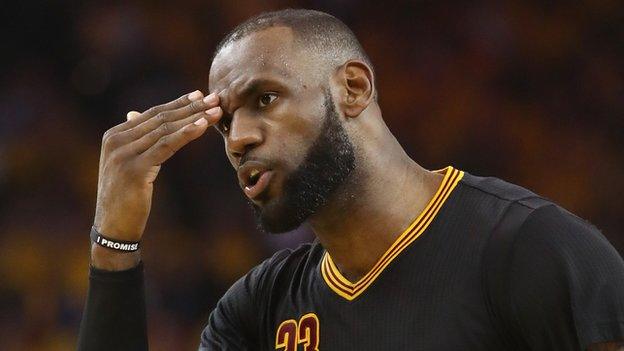
- Attribution
- Published25 September 2017
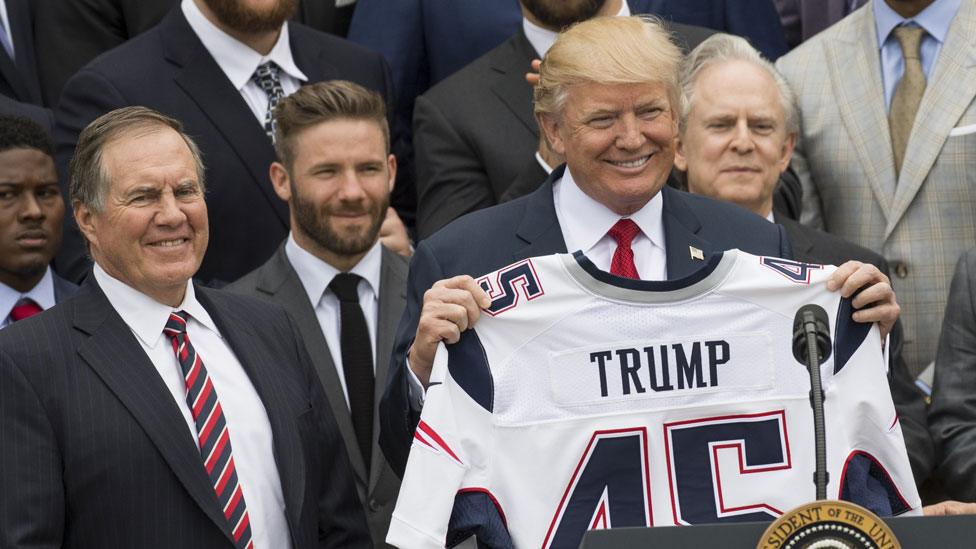
- Attribution
- Published25 September 2017
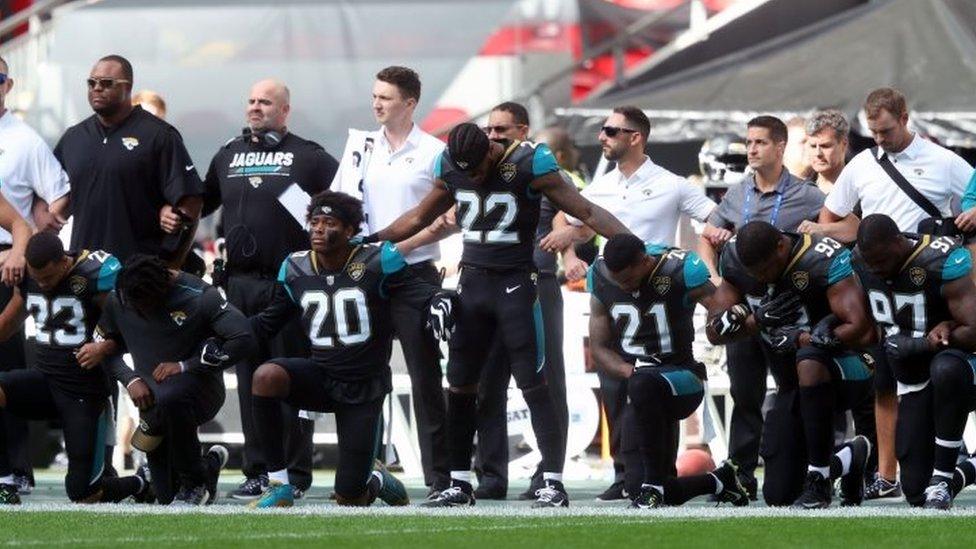
- Attribution
- Published25 September 2017
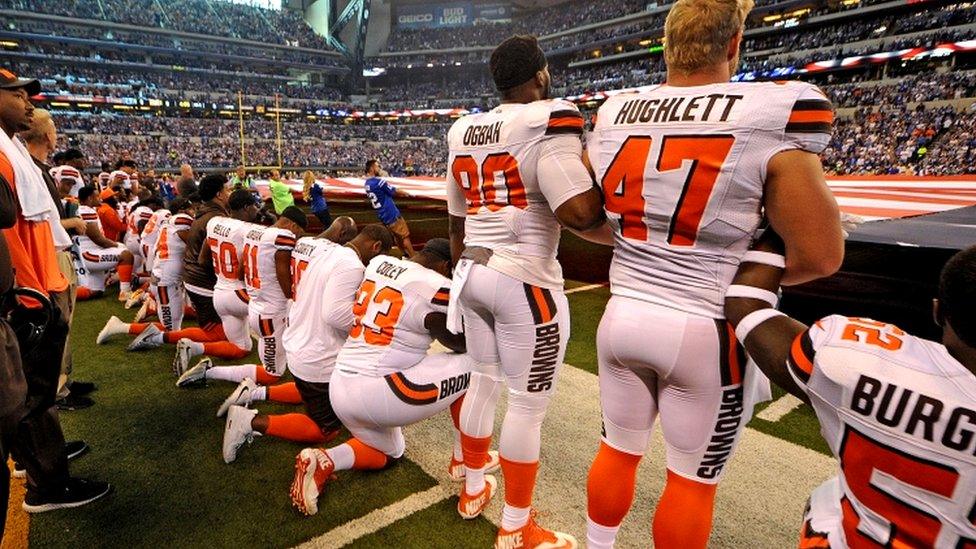
- Published25 September 2017
